“Squid Game” Season 2 heads back into the arena
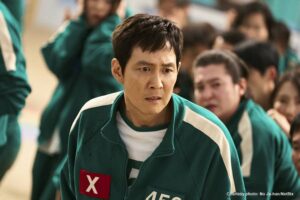
NPR invited me back on their Pop Culture Happy Hour podcast to discuss the second season of the Korean series “Squid Game.”
Journalist, Author & Syndicated Columnist

NPR invited me back on their Pop Culture Happy Hour podcast to discuss the second season of the Korean series “Squid Game.”

The last time a president declared martial law in South Korea was in 1980.
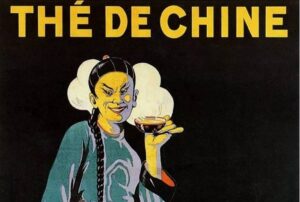
This is how stereotypes work. Westerners have depicted Asian men as being effeminate since forever.

NPR’s Ayesha Rascoe speaks to syndicated columnist Jae-Ha Kim about the scandal that led to the death of beloved South Korean actor Lee Sun-Kyun. Note: This conversation has mentions of self-harm.
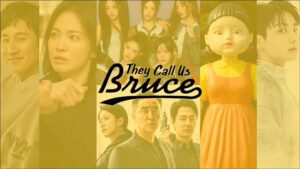
I was the first guest of 2024 on Phil Yu and Jeff Yang’s podcast, “They Call Us Bruce.” We discussed K-dramas, BTS, Lee Sun-kyun’s tragic death and how annoying it is when non-Asian members of the media co-opt our stories.
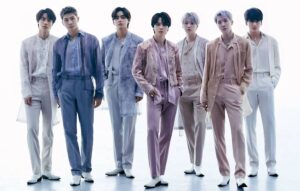
In this essay, writer Jae-Ha Kim celebrates BTS’s 10th anniversary as a group by looking at the dreams they achieved on behalf of the Korean diaspora. They rose to the top and took us with them.

In an unusual cinematic coincidence, two critically acclaimed films about South Korean adoption were released in December depicting different sides of the adoption story. Broker focuses on a teenage girl who leaves her infant at a church’s safe haven baby box, while Return to Seoul tells the story of a French woman who reunites with her birth family just days after arriving in Korea. To better understand how these films speak to real-life adoptees, I talked to Korean academics, human rights experts, and adoptees. My reported piece for MASHABLE.

A year ago, Tablo wasn’t sure there would be another Epik High album. Now the Korean hip-hop star is ready to talk about it all — from their new EP, ‘Strawberry,’ to the trauma he faced from an online troll campaign, to his next collaboration with BTS’ RM. My exclusive interview for Rolling Stone.

BTS’ Kim Seok-jin announced today that he is preparing to enlist in the Korean military, which is required of all able-bodied Korean males. There are exceptions for athletes, classical musicians, and some academics. So why didn’t the Korean government exempt BTS, whose global achievements are unparalleled?

I loved “Extraordinary Attorney Woo.” The storylines were compelling and the actors did a fine job in bringing their characters to life. Park Eun-bin has been singled out for her extraordinary portrayal of a highly-functioning autistic attorney. But that’s where my conflict lies. As many autistic people have already pointed out, as good as Park was in her role, it is unsettling to watch a non-disabled actor portray a character who is on the spectrum. Most of my friends and acquaintances who have autistic children said they couldn’t force themselves to watch beyond the first episode, because her portrayal felt like a mockery of what they live through.
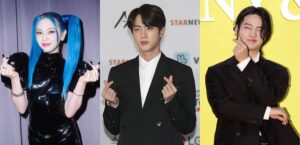
May is Asian American and Pacific Islander Heritage Month. Coincidentally, it’s also Mental Health Awareness Month. And while the latter designation draws attention to the benefits of taking care of our overall well being, mental health care traditionally has been overlooked by Asians – a mindset that experts say has trickled down to Asian Americans.

Had Tablo not experienced the alienation and toxicity of TaJinYo, Tablo’s music – and therefore Epik High’s, too – most likely would not have resulted in “Epik High Is Here 下 (Part 2).” From all those lies, truth survived.

“Having been raised using Korean in her family, a Korean American journalist said that she still struggled to speak Korean fluently, and this experience led her to question why Korean entertainment writers and consumers failed to question improbable stories, such as that of ‘Vincenzo,” Lee Kyung-eun — the director of Human Rights Beyond Borders — wrote in her OpEd piece. The journalist she is talking about … is me.

“Having diverse characters leads to endless possibilities for storytelling. And there are infinite ways to tell an adoptee’s story…”

“Squid Game” is not this year’s “Parasite,” so much as it is a satire in the vein of “A Modest Proposal.” Just as Jonathan Swift pointed out the abject brutality of telling the poor to satiate their hunger by eating healthy, plump babies, Hwang depicts the cruelty of lording a huge sum of money – literally – over desperate people’s heads, knowing that most will die as they lived: penniless.

“One of my objectives in filmmaking is to bring empathy and understanding to our community,” said “Blue Bayou” writer, director and star, Justin Chon.

BTS approaches their music as art, because that’s what they want to create – something beautiful and meaningful that withstands the test of time.

In this essay, writer Jae-Ha Kim examines BTS’s recent statement calling attention to anti-Asian racism. Content warning for discussions of racism and use of a quoted slur.

In this op-ed, writer Jae-Ha Kim unpacks the racist comments of German radio host Matthias Matuschik towards Korean band BTS in the larger context of the rise in violence toward Asian people globally. Content warning for discussions of racism and use of a quoted slur.